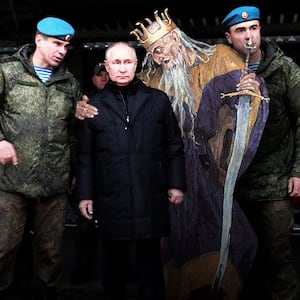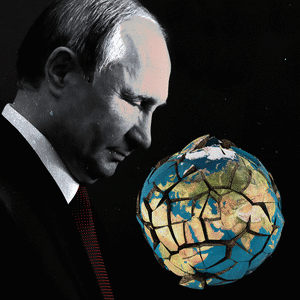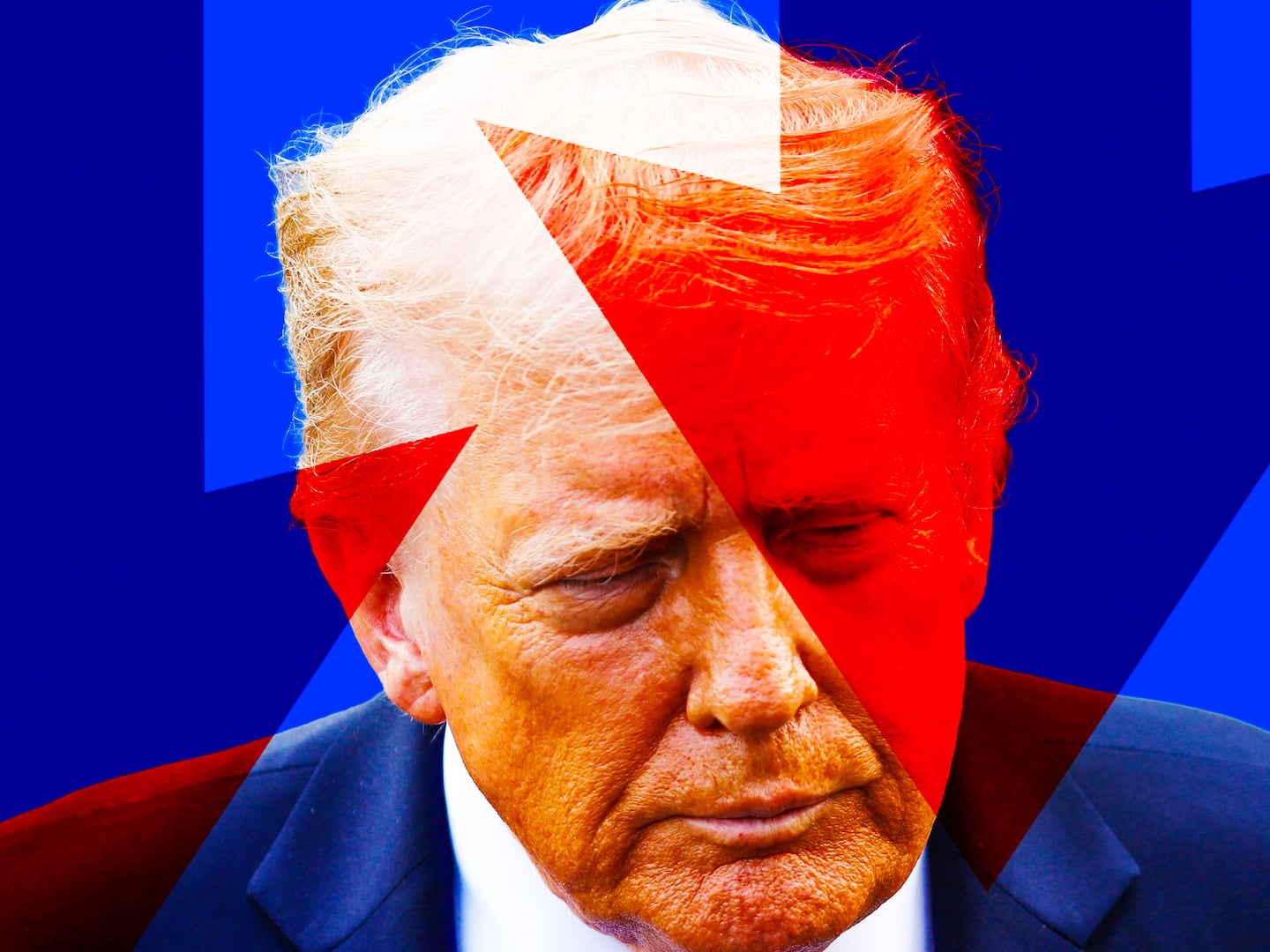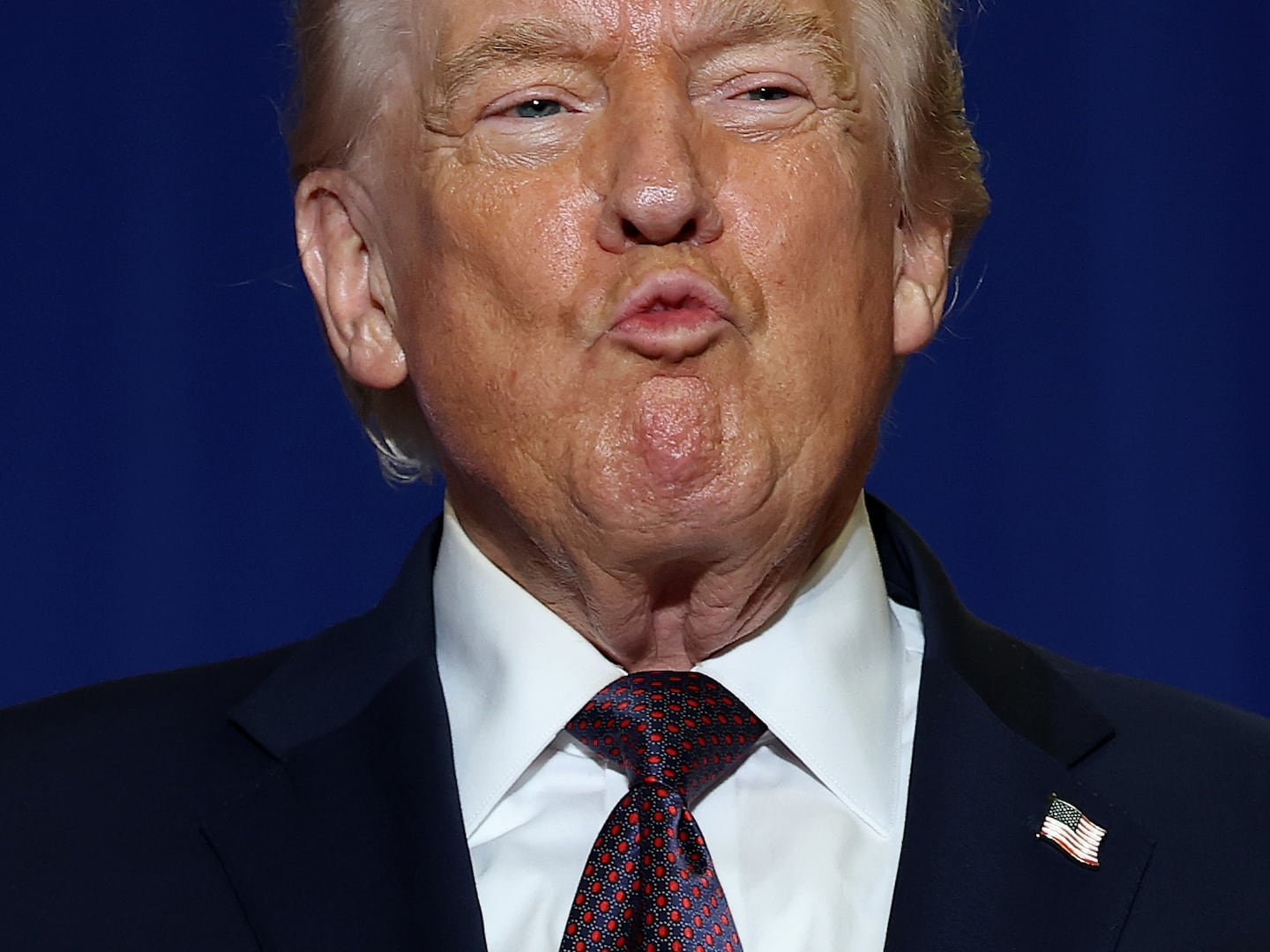It’s one of the oldest philosophical debates in history: does evil exist?
Humankind’s original word for evil, 𒉆𒅆𒌨—pronounced namhul—emerged 6,000 years ago in Sumer, one of the cradles of civilization located within the borders of modern-day Iraq. It was applied to a wicked despot: “The Sumer tablets describe an evil leader as one who oppresses orphans and widows; those who do not seek equity under the law; do nothing to prevent chaos, and murder their own people,” explains Dr. Jonathan Tenney, Cambridge University assistant professor of Assyriology and a specialist in the Sumer language. “Namhul is also an abstract for rottenness.”
Six millennia later, another rotten leader stalks the Earth.
“Evil is still around today, and when evil comes after you,” Zelensky warns, “there will be no one to protect you.”
The unleashing of an all-out ground war in 21st-century Europe was something that many governments thought impossible, and yet the only reasonable forecasts one can make 12 months later would suggest the misery is going to intensify.
“The liquidation of Ukraine is the only formula for peace,” Vladimir Putin’s televised pitchman Sergey Mardan recently told 143 million Russians in a verbal barrage to intensify the estimated $1.2 trillion of damage Putin has rained on Ukraine over the past 12 months.
The evil Zelensky sees percolating in Putin is like the universe: large, not fully understood—and expanding.
It encourages those around him to behave in the same way.
The St. Petersburg hotdog vendor, ex-convict and infamous military contractor Yevgeny Prigozhin perhaps most clearly personifies the Sumer’s definition of evil. Prigozhin, who owns and operates the Russian mercenary force Wagner Group and other companies under U.S. Treasury Department sanctions, is quite literally Putin’s hatchet man in Ukraine.
“These abominations are not tolerated,” warns the Sumerian Hymn to Enlil. “The evil and wicked man do not escape.”
But they do have lawyers. Prigozhin is currently represented by teams of high-profile attorneys in London and Washington. In one recent litigation, the U.K. government remarkably gave his counsel special authorization to represent their sanctioned client in a libel claim against journalists.
Last January, when The Financial Times asked one of Wagner’s gunslingers if the group was a terrorist organization, Prigozhin’s answer arrived over the Russian social media site Telegram. “If you think that my employee will respond to this endless chewing of shit in his mouth, in turn I would like to respond to The Financial Times,” Prigozhin wrote. “Spit that shit out, breathe some fresh air.”
There is little fresh air in Ukraine. Multiple scientific studies show that 12 months of Russian bombardment and the fallout of structural fires have resulted in severe long-term health and environmental concerns throughout the region.
“Prigozhin’s power is that he’s an evil person,” says Dmitry Palyuga, a counselor for the Putin-allied Yabloko Party. “Prigozhin can say it publicly that, ‘Yes, I’m doing some evil stuff but if I don’t do it we will lose.’”
“Prigozhin is the devil with a bow tie,” adds Russian opposition politician Igor Yakovenko. “The West is not ready to accept this evil. It’s not clear what it is.”
As Yakovenko sees it, Prigozhin and Putin are two pieces in the devil’s jigsaw, a puzzle with a sinister solution eternally in dispute. For Dante, evil was a 14th-century poetic meditation, a Divine Comedy charted by navigating the conical structure of Hell. Hannah Arendt categorized evil as a “phenomenon” embodied in the Nazi war criminal and Holocaust architect Adolph Eichmann, whose 1961 prosecution she covered for The New Yorker.
Arendt said that her pervasive description “the banality of evil” could not be ascribed to “any particular wickedness, pathology, ideological conviction or the doer, but resulted from a phenomenon which starred one in the face at the trial.”
The evil exposed in Eichmann’s expression was not exceptional, profound or demonic. It was dull, boring—and thrived because Adolf Hitler had codified the Holocaust into law.
“The law of Hitler’s land,” Arendt said, “demanded that the voice of conscience tell everybody ‘thou shall kill,’ although the organizers of the massacre knew full well that murder was against the normal desires and inclinations of most peoples.”
Putin, too, has validated morality’s concept of evil as a legalized albeit criminal activity, and the International Criminal Court does not try defendants in absentia. Putin must first be captured and extradited before he can stand trial for crimes against humanity including more than 7,000 civilians dead and over 200,000 military casualties on both sides, according to General Mark Milley, chairman of the U.S. Joint Chiefs of Staff.
‘Cannot be cured’
But Putin and his martinets are immune from prosecution for evil, because there are no secular laws to deliver us from evil. “History shows us that evil and the rule of law can coexist,” says the American attorney and Cambridge University legal scholar Anna Lukina.
“The language of law and political science fails to get to the core of (Putin),” says Andrei Babitsky at the Washington-based Wilson Center’s Kennan Institute for advanced research on Russia. “We should not be shy to use evil in these debates.”
Western leaders agree.
“What Putin has done is evil,” says former British Prime Minister Boris Johnson. “It probably follows that if you are what you do, then certainly.” Adds former U.S. Ambassador to Russia Michael McFaul: “I did not expect Putin to be as evil in the way he is fighting this war that he has been.”
U.S. President Joe Biden last April refused to mince his words. “Yes, I called it genocide,” Biden said, responding to questions after delivering a speech on Putin’s attempt to exterminate Ukraine. “It has become clearer and clearer that Putin is just trying to wipe out the idea of even being—being able to be Ukrainian.”
Perhaps Putin’s most remarkable achievement is that he’s helped Zelensky cut through the ambiguity of evil, and obliged the U.S., NATO and the 54 countries in the Ukraine Contact Group to spurn negotiation and instead arm Zelensky combat the mayhems, mischiefs and manipulations of the Kremlin despot.
Putin and Prigozhin did not respond to requests for comment.
“Evil is very sensitive to cowardice,” Zelensky warned his Western allies during the battle of Dnipro. “Evil always remembers those who fear it or try to bargain with it.”
Back at the Cambridge University archaeology department, Dr. Tenney says Putin is a poster boy for what the Sumer civilization typified as an evil leader. “It’s an apt description of Putin,” he says.
But is evil intentional and, if Putin is its synonym, could he grasp the fiendishness of his actions in Ukraine? Would he be capable of sorrow, guilt, negotiated redemption? The distinguished American psychiatrist and psychoanalyst Dr. Juan Rene Geada, who’s spent three decades and in multiple languages exploring the dark corners of the devil’s jigsaw, says the answer is no.
“Evil cannot be cured,” Dr. Geada says.








